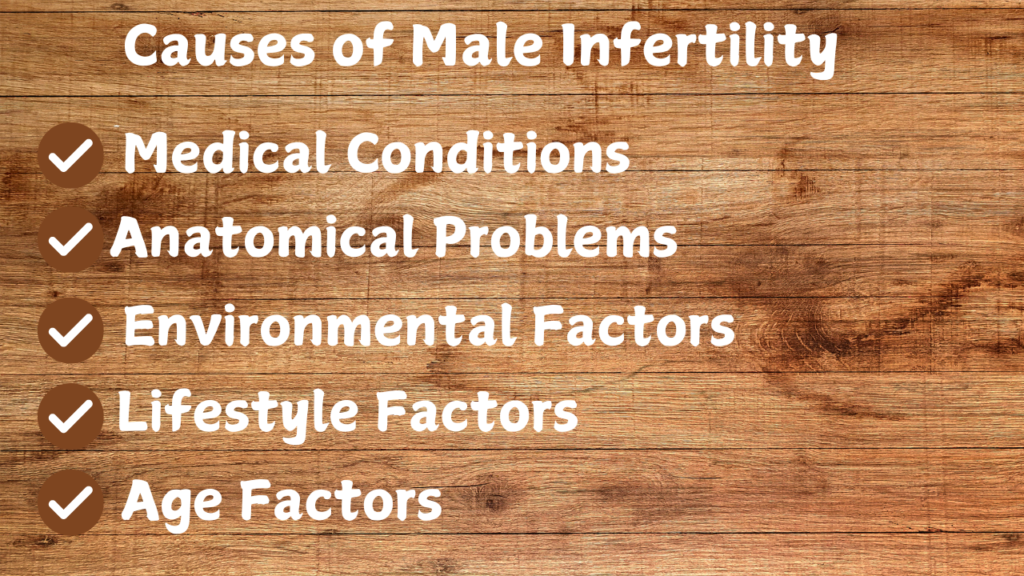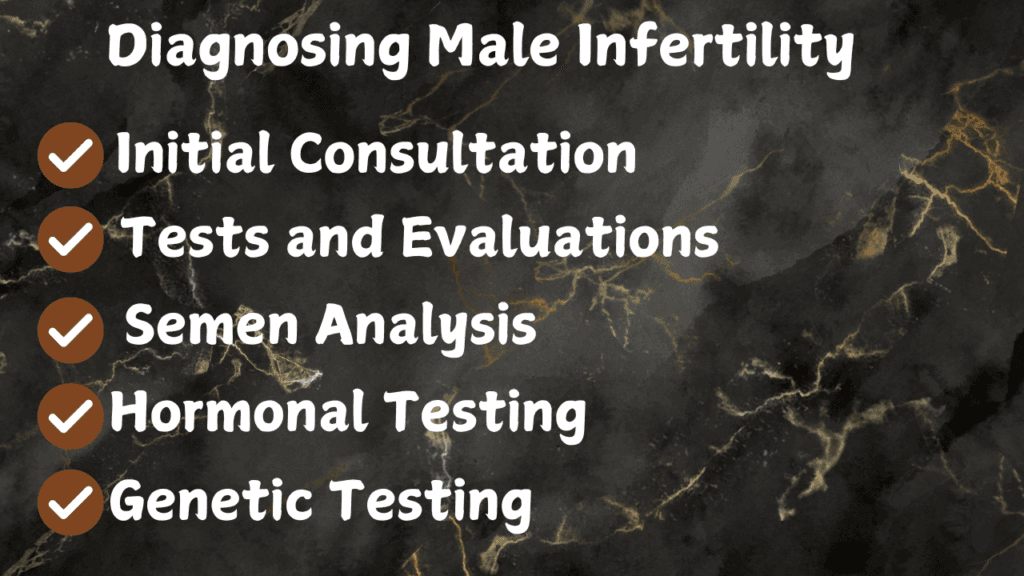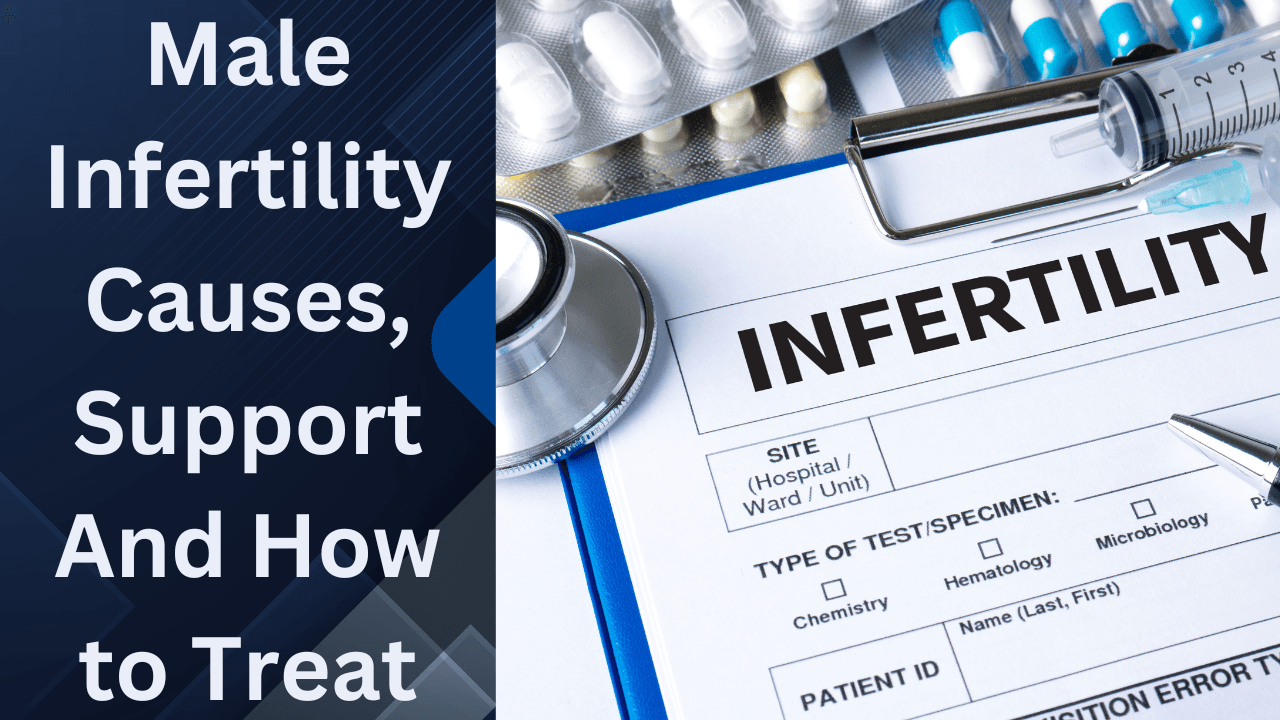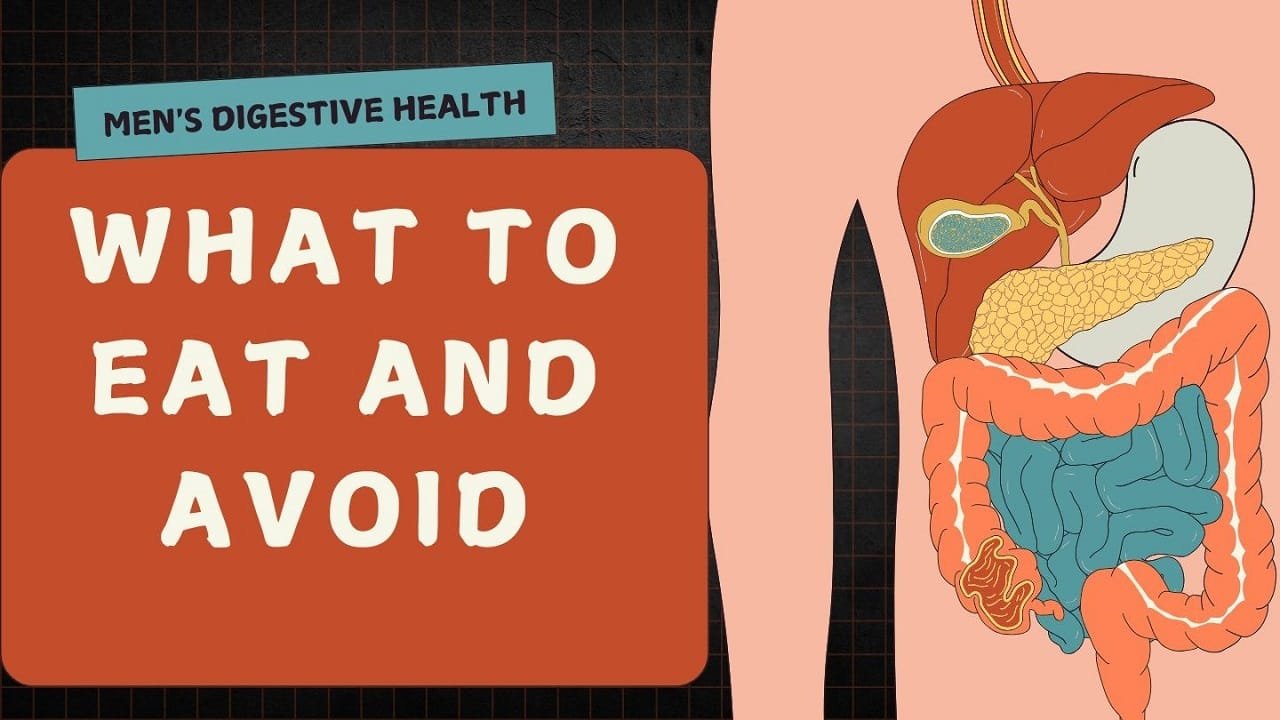Introduction:
Male Infertility | If you ever used the services of a fertility clinic, I bet you asked yourself why some individuals face fertility issues, and why some of them do not have such problems at all? Infertility is especially a male factor issue that is not well understood by many people especially the affected males and their partners. It is not a woman’s problem alone; over 10% of men experience fertility issues, and learning what causes it may be difficult. But you’re not alone.
In this extensive manual, you will get to know the different factors leading to male infertility, the available psychological and practical assistance, as well as the ways you can cope with it. By the time you reach the end of this post, you will have a better understanding of male infertility therefore getting you closer to seeking the right course of action.
1. Understanding Male Infertility:
Definition of Male Infertility:
Male infertility is the inability of a male to make a female partner pregnant for one year without using any form of birth control. They may occur due to factors that in some way hinder sperm production, functionality or delivery.
Male Infertility Demography:
- Infertility affects about 15% of couples of child bearing age.
- Male infertility is another significant cause of 40-50% of these cases.
- According to recent findings, at least 10% of men may at some time in their reproductive calendar suffer from inability to reproduce.
2. Causes of Male Infertility:

This is good, know the cause is very important when one is out looking for cure from the disease. Here are some common factors that contribute to male infertility:
Medical Conditions:
- Hormonal Imbalances
Sterility may also be as a result of hormonal problems including those concerning testosterone. - Genetic Disorders
Some conditions may cause disturbances of testicular function, for example, Klinefelter syndrome whose mode of inheritance is sex linked.
Anatomical Problems:
- Varicocele: Varicoceles that dilate blood vessels within the scrotum and raise the temperature of the testicles as to alter sperm.
- Obstructions: Sperm delivery can be blocked by structures that lie in the reproductive tract.
Lifestyle Factors:
- Smoking and Alcohol
In this one, both can reduce the sperm count and mobility. - Drug Use
Hormonal Drugs, Marijuana, other can inhibited the affects of fertility. - Obesity
Being overweight reduces testosterone levels according to a new study. - Diet
There are strong relations between diets and health/fertility issues.
Environmental Factors:
- Exposure to Toxins
Kjeldman et al., 1997, has pointed out that pesticide, heavy metal and chemical decrease the sperm production. - Heat Exposure
Scrotal temperature increases with regular use of saunas or by wearing tight clothes.
Age Factors:
Men’s fertility often reduces after the age of 40 because of low testosterone and other issues related to sperm.
3. Signs and Symptoms of Male Infertility:
Knowing the symptoms of male infertility can make a person take necessary action on time. Common symptoms include:
Physical Signs:
- Changes in Hair Growth
Less facial or body hair may be associated with hormonal problems. - Testicular Size
A number of issues can be related with lesser size of testicles including abnormalities in hormone synthesis. - Erectile Dysfunction
Erectile dysfunction or the inability to develop or sustain an erection is one possible sign of the condition.
The Social, Emotional and Psychological Impact
- Anxiety and Depression
It has been postulated that sexual infecility induces a lot of stress, which may cause high levels of emotional upset. - Relationship Strain
- Parenthood gives couples pressure due to the challenges they face in conceiving.
4. Diagnosing Male Infertility:

When you have issues that may indicate low sperm count, it is important to seek medical attention. Here’s what to expect:
Initial Consultation:
- Consult a healthcare provider that deals with males intending to have children.
Tests and Evaluations:
- Semen Analysis: Tests sperm quantity and characteristic including count, motion and shape.
- Hormonal Testing: Blood tests to determine identity of hormones including testosterone.
- Genetic Testing: Discovers any inheritable disease that may affect fertility.
5. Support for Men Facing Infertility:
Counselling or support of male partner plays an important role in case of fertility problems. Here are some avenues to explore:
Emotional Support:
- Therapy and Counseling :The person should also talk about the problem with a therapist; it will help to cope with anxiety and depression.
- Open Communication: Talk to partners about daily emotions and problems to make the relationship strong.
Support Groups
You might want to try getting an online or offline support group to help you meet others experiencing the same thing.
Partner Support:
It helps you support each other by participating in discussions on infertility treatment.
6. Treatment Options for Male Infertility:
Once diagnosed, there are several treatment options available:
Medical Treatments:
- Hormonal Therapy: Anti-androgens can assist in getting hormonal balance back and overall enhancing sperm reproduction.
- Surgery: Treatments to fix issues that affect body structure such as hydrocele or obstruction.
Assisted Reproductive Technologies:
In simple terms, assisted reproductive technologies (ARTs) refer to treatments used to help patients achieve pregnancy.
- This procedure is technically known as intrauterine insemination commonly abbreviated IUI.
Sperm is directly deposited to the uterus at about the period of ovulation. - :IVF stands for In Vitro Fertilization
- Eggs are compiled and fertilized from outside the body, then inserted.
Lifestyle Changes:
- Dietary Adjustments
Supporting the suggested dietary changes distance emphasis on a proper diet containing antioxidant and lipids. - Regular Exercise
Fertility can be enhanced by achieving and keeping a healthy weight. - Stress Management
walking, jogging, swimming, yoga , meditation or deep breathing can reduce stress.
7. When to Seek Help:
It’s important to know when to consult a specialist:
Understanding Timing:
If you have been attempting to conceive and fail for one year (if below 35 years) or six months (if above 35) consult a doctor.
Key Indicators for Professional Help:
- Hence Changes In Sexaul Function: Men should seek consultation if they have complaints of significant problems with libido or erectile function.
- Family History: People with family history of fertility problem should seek earlier evaluation.
Conclusion:
Managing male infertility can be very difficult, yet knowing its causes, seeking help and exploring available treatments goes a long way. Just be aware that many others are on this journey with you.
Taking such a step is vital, and by being early and informed, there are certain steps you can take towards enhancing fertility and welcoming the desired family. It’s okay to ask for help because help can be offered, and there are solutions to every problem.

1. What is male infertility?
Infertility is a medical condition in which a male cannot impregnate his partner after one year of unprotected intercourse. Erectile dysfunction can be as a result of spermatogenic disorders, gonadal dysfunction or impairments in sperm transport.
2. What are common causes of male infertility?
Anatomical disorders (such as varicocele).• His/her behaviour over a period: smoking, alcohol consumption, obesity etc.• Chemical several substances, heatances
• Genetic disorders
• Anatomical problems (like varicocele)
• Lifestyle factors (smoking, alcohol use, obesity)
• Environmental exposures (toxins, heat)
3. How is male infertility diagnosed?
Conventional blood tests for hormonal imbalances as well as possibly genetic testingiled medical history
• Physical examination
• Semen analysis
• Hormonal and possibly genetic testing
4. What are the signs of male infertility?
Other mental experiences such as anxiety or depressionuced testicular size , Erectile dysfunction, Emotional distress such as anxiety or depression
5. When should I see a doctor about infertility?
If a couple has been attempting to conceive for twelve consecutive months, or six months for those above thirty-five years or if one of you is having certain changes in your sexual function, then it would be wise to engage the services of a doctor.
6. What treatments are available for male infertility?
Surgery due to anatomical abnormalities• IUI/ IVFSelf-help nutritional changes for the improved health and fertility• Surgery for anatomical issues
• Assisted reproductive technologies (IUI, IVF)
• Lifestyle changes to improve health and fertility
7. Can lifestyle changes improve male fertility?
Yes, most of the factors that you might practice in your everyday life have a way of helping to improve your fertility such as practicing a healthy diet, engaging in physical exercise and managing stress.
8. Is male infertility reversible?
In some cases, yes. Based on the root, issues can be addressed to make it easier for a couple to conceive again or get treatment for infertility.
9. How can I support my partner during infertility?
Honesty about the situation itself, understanding each other’s feelings and deciding on whether to address the matter together with a therapist is useful for the couple.
10. Where can I find support for male infertility?
You might try going to a support group or a counselor or an on-line forum who deal with infertility. Other such help may be present in centers such as Resolve or local clinics.
















